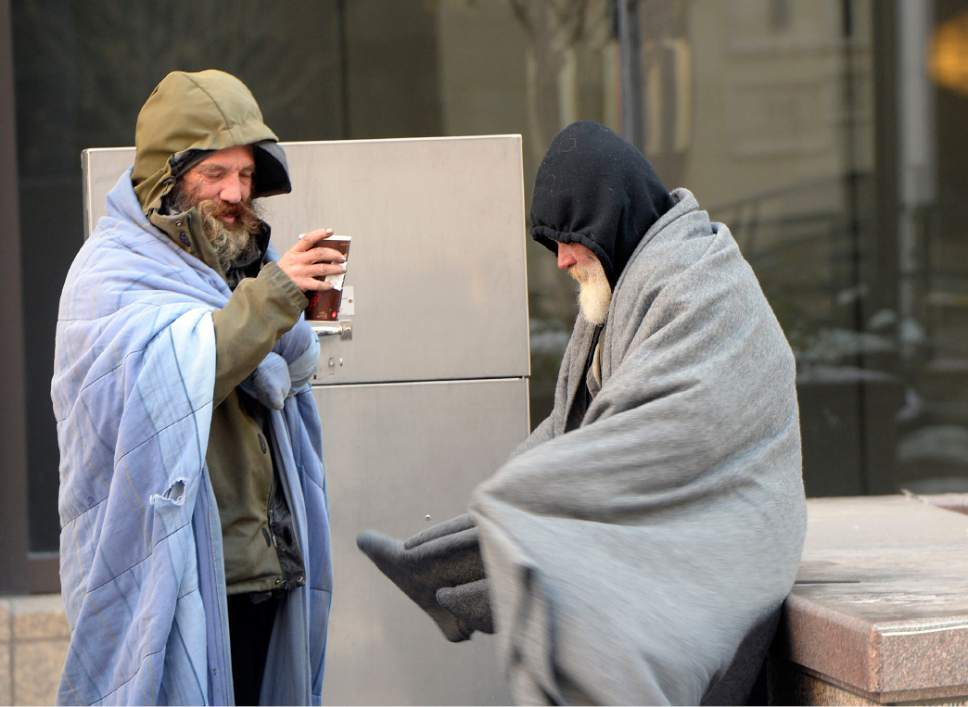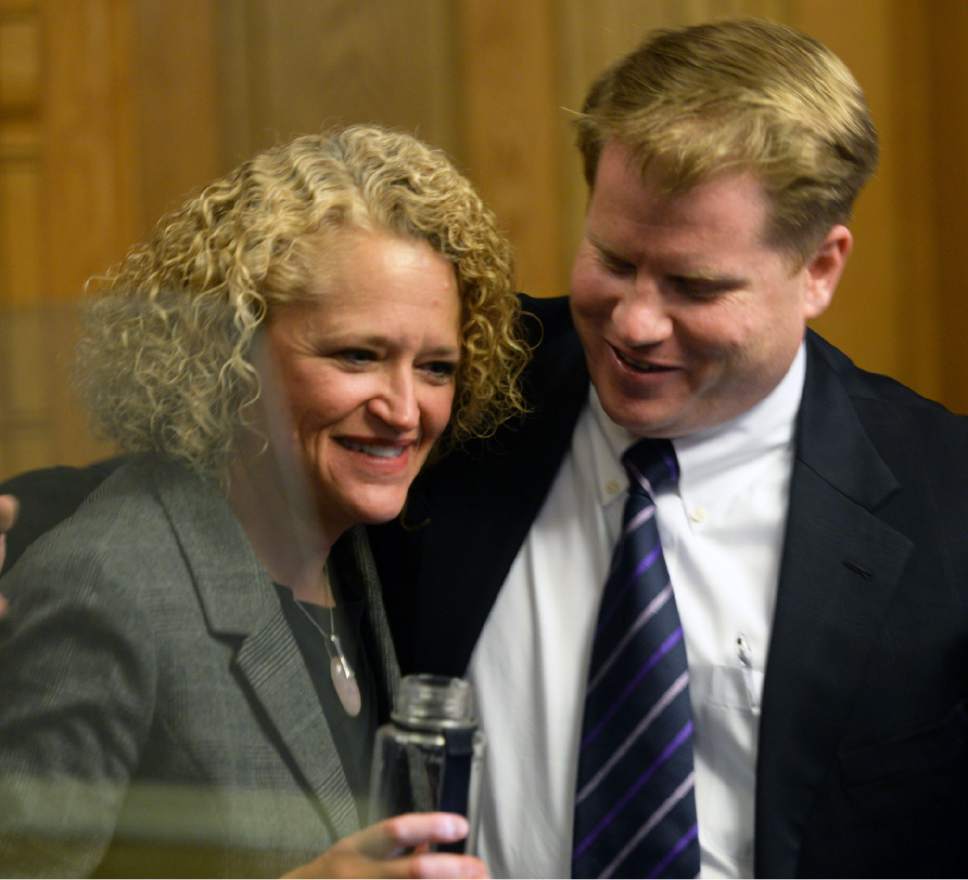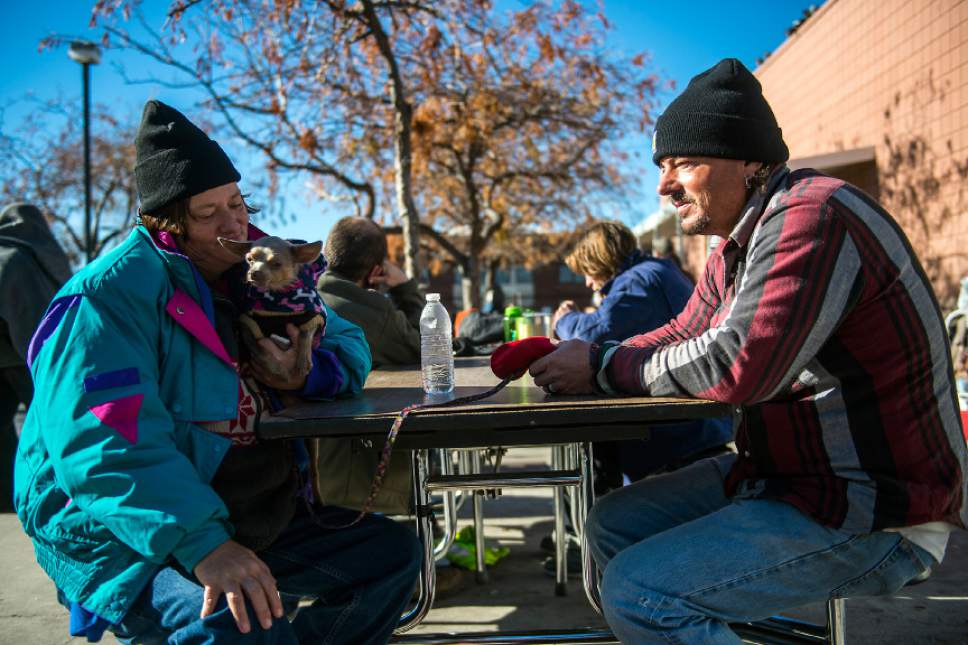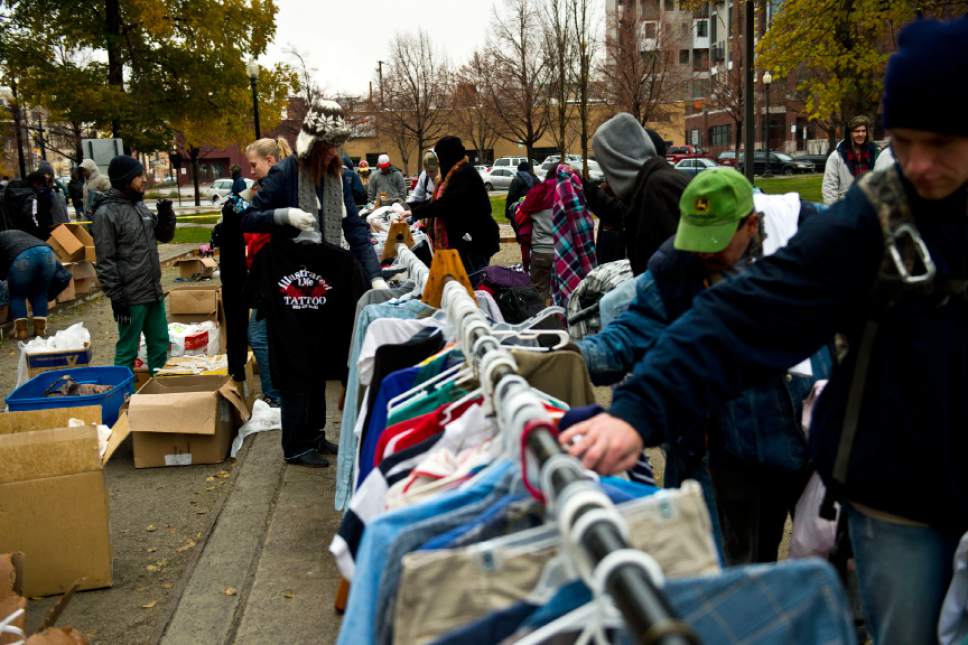This is an archived article that was published on sltrib.com in 2016, and information in the article may be outdated. It is provided only for personal research purposes and may not be reprinted.
Not only do Salt Lake City leaders hope to boost affordable housing in Utah's capital, they also are signaling they want to do it in a large way.
Efforts to add thousands of new, more moderately priced dwellings to the city's housing stock have a raw urgency these days at City Hall, framed in the context of alleviating a worsening homeless crisis.
As police targeted drug dealing and hauled off 90 people in the swelling homeless encampments near the Rio Grande Depot and Pioneer Park last week, the City Council also began an intense study of ways to potentially pump millions of new dollars into affordable homes.
"How do we go big?" Councilman James Rogers repeatedly asked of housing and homelessness experts at one of a series of hearings held amid law enforcement's Operation Diversion.
The answer, Rogers and others were told, could mean new taxes or other city fees as well as a major overhaul of zoning and development rules.
Experts estimate that the city needs another 7,400 dwellings with rents matching the budgets of average working-class, lower-income and impoverished resident as prevailing wages continue to lag behind rising housing costs.
After months of study by a special task force, Mayor Jackie Biskupski's administration has handed the council new financial tools aimed at the problem, including the options of a sizable property-tax levy or a bond.
City officials will look at new "inclusionary" zoning policies that require affordable units in every housing project, measures likely to draw concern from developers. Also on the table are density bonuses and incentives to encourage mid-density housing types — such as town homes, cottages and bungalows — known as "the missing middle."
City Hall also will explore a more active approach to buying and selling land to give it more leverage in housing deals. The emerging blueprint includes special breaks on permitting for affordable projects as well, along with new programs for preserving aging homes and having the city invest directly in new housing as an equity partner.
Housing advocates and top staffers with the city's Division of Housing and Neighborhood Development (HAND) warn that any new rules on zoning, density and development will go only so far — if not backed by a stream of cash well in excess of the nearly $7 million that now moves through the city's Housing Trust Fund in a given year.
Other subsidies, through U.S. Housing and Urban Development and the state's Olene Walker Housing Loan Fund, are not enough to close the gap, city officials say. And without substantial investments in stabilizing housing for residents living on the edge, HAND Director Mike Akerlow said, "it's going to cost us more in the long term."
Former Mayor Palmer DePaulis said any effective remedy to the city's homeless problem needs to focus on "prevention as much as possible to keep people out of homelessness and provide for affordable housing."
Housing trust funds are a common way cities offer tax offsets and other incentives to make affordable homebuilding projects more likely to pencil for private and nonprofit developers, according to Michael Anderson, a national expert with the Portland-based Center for Community Change.
Studies of more than 700 such funds, Anderson said, show that impact fees levied directly on new development and on document-processing in real estate transactions are the most robust ways to keep them reliably funded.
But neither of those options is ideal for Salt Lake City, Akerlow and others note. Utah law prevents local governments from levying impact fees on developers to pay for anything other than new demand for fire and police services, roads or parks. So an affordable-housing impact fee is out, at least without changes from state lawmakers.
New fees on document processing, meanwhile, are unlikely to generate enough money for what the city hopes to do, Akerlow said.
After a review of affordable-housing strategies in other cities, HAND officials have suggested bringing in new trust fund cash with a property-tax levy of about $120 annually on an average-priced Salt Lake City home. That could raise up to $80 million a year, city documents say.
The levy approach, said Melissa Jensen, HAND's deputy director, offers "tremendous opportunity for innovation and impact."
Any such tax hike, of course, would be subject to public hearings and council approval. And city leaders are already voicing frustrations that a property-levy bump would fall heavily on homeowners while major employers with a direct impact on the city's housing market — the University of Utah, state government and The Church of Jesus Christ of Latter-day Saints — would be exempt.
With talks on homelessness and affordable housing likely to intensify in coming weeks, Biskupski's staff, council members and others say no single policy provides a silver bullet. But they are raising hopes that tackling the issues in Salt Lake City will have a statewide impact.
"This is a remarkable period of time," DePaulis said, "when people have come together."
Twitter: @TonySemerad









